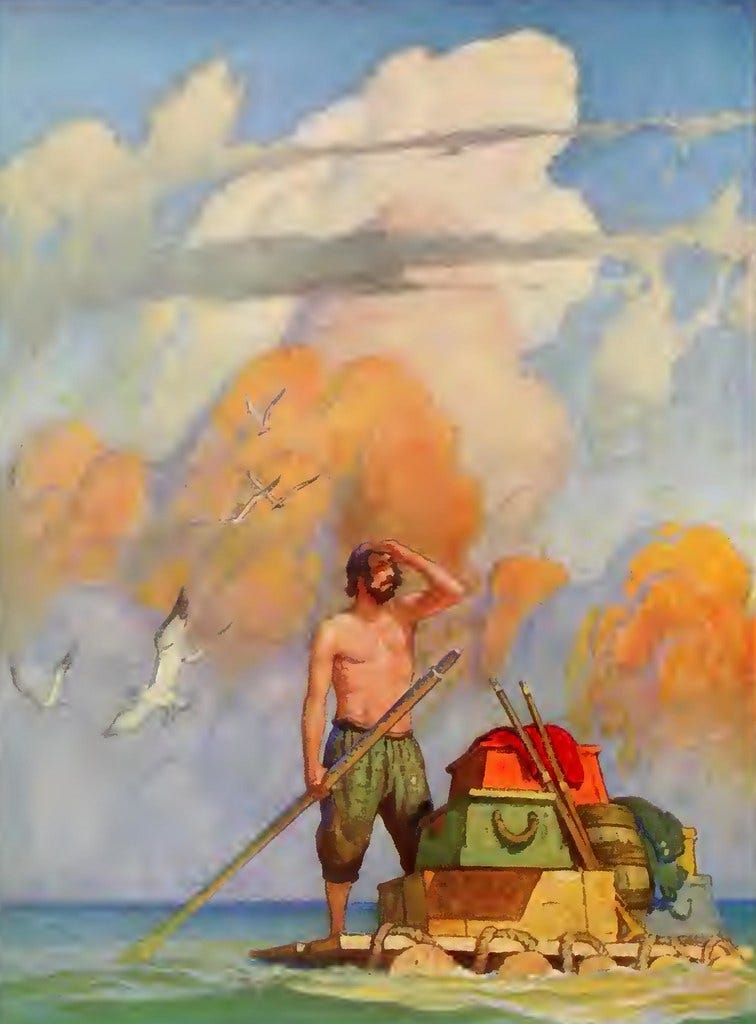A good friend of mine, Ken West, decided to binge listen to Robinson Crusoe on a long road trip he just took. His PhD dissertation will center around Rousseau’s Emile in which Defoe’s work figures prominently. He loved the book and asked that I also read it. I decided right before the end of the month, over Memorial Day weekend to finish this book.
I have binged listened to/read significant portions and I also love this book. This book raises, like Huckleberry Finn, some big issues of racism in classic literature which I will deal with as I go throughout this work. Defoe’s description of Friday is pretty terrible, but it seems that the world has not thrown away this text despite some very grievous errors in this regard. Defoe’s work is a deeply Christian work as well which I was caught off guard by. G.K. Chesterton once was asked what book he would bring to a desert island, and without batting an eye (instead of saying the Bible as he was a devout Christian) he said, The Practical Guide for Ship Building. It is clear now that Chesterton meant this book. Defoe is a master story teller, and I didn’t want others to come find Crusoe, I deeply enjoyed my time on the island. It was a true delight to sit with this book. Like My Antonia I didn’t ever want the life on the farm part to end, I also didn’t want the time on the Island to end.
If you have any earnest, raw enjoyment of fiction still left in your soul, read Robinson Crusoe and force yourself to read it quickly and it will charm your old, jaded heart. I loved it. Two small tie-ins to mention here, first Defoe is quite critical through the lens of Crusoe of the Spanish conquest of the Americas. Crusoe admits at least to himself though not to Friday oddly enough that the Spanish were brutal to the civilizations already inhabiting the Americas when they arrived. Defoe, here, seesm
Secondly, at the end of Robinson Crusoe, the pair of Crusoe and Friday go on other adventures and the book sort of ends abruptly, but their last adventure recorded in the book is in the mountains of southern France near where Emily St. Aubert would have resided before this timeline as Udolpho was set in the 1584 though written in 1795. Defoe published Crusoe in 1719 and I imagine it was set in the mid to late 1600’s. Crusoe gets lost in a forest near Languedoc.
This may cause me to create another spreadsheet where I attempt to put all of the characters and authors of classic literature on one timeline! Probably not, but who knows.

Comments
Post a Comment